Lobbying Brexit Negotiations: Who Lobbies Michel Barnier?
A new paper, co-authored by Professor of Public Policy and GGI Director
David Coen and Dr Alexander Katsaitis (London School of Economics), focuses on the role of interest groups in the Brexit negotiations. It explores which groups have the greatest access to the EU’s Chief Negotiator, by drawing from theories on deliberative democracy and institutional legitimacy. The authors argue that different groups are given access to the Chief Negotiator depending on the resources they can contribute.
Find out more.
UCL Laws academics' argument led Gina Miller to victory
A blog co-written by
Professor Jeff King (Professor of Law, UCL Faculty of Laws) and
Dr Tom Hickman (Professor of Public Law, UCL Faculty of Laws), alongside Nick Barber (Fellow at Trinity College Oxford) wrote:
‘Pulling the Article 50 ‘Trigger’: Parliament’s Indispensable Role’. The blog is regarded to be the ‘origins of the litigation’ in the Brexit Miller ruling delivered on 24 January 2017 according to an article written in The Times by Lord David Pannick QC. It was argued in the blog that it would be incompatible with the European Communities Act 1972 for the Prime Minister to trigger the Article 50 process without a further act of parliament.
Find out more.
The Wightman Case
In late 2018,
Professor Piet Eeckhout, Dean of
UCL Laws and Academic Director of the
UCL European Institute, published a journal article titled
Article 50: A Constitutionalist Reading, which led to an advisory role in
Wightman and Others v Secretary of State for Exiting the European Union. The case concerned the European Court of Justice (CJEU) clarifying the legal status on whether a member state which has notified the EU of its intention to leave can unilaterally revoke that Article 50 notification. The article began as a UCL European Institute Working Paper,
Brexit and Article 50 TEU: A Constitutionalist Reading published in January 2017.
Find out more.
Brexit – Past, Present and Future
The
UCL European Institute and the Global Policy Institute (University of Durham) are preparing a Special Issue of the Journal Global Policy (Wiley Blackwell) on “Brexit – Past, Present and Future”, due out in 2021. The project brings together various internationally recognised authors from political science, history and law. In preparation for the publication, contributors met in three webinars – on 17 June, 1 July and 15 July 2020 – to analyse the constitutional and political ramifications as well as the prehistory of Brexit from a multidisciplinary perspective.
Find out more.
UCL Academic co-authors a report on research and innovation
Professor Graeme Reid, Chair of Science and Research Policy, co-authored a report with Professor Sir Adrian Smith titled ‘Changes and Choices: advice on future frameworks for international collaboration on research and innovation'
in July 2019. The report was commissioned by the Minister of State for Universities, Science, Research and Innovation to explore future frameworks for international collaboration on research and innovation after the UK left the EU. The government published the report in November 2019, shortly before the UK formally left the EU. Find out more.'Parliament and Brexit' Report
The UCL Constitution Unit launched ‘Parliament and Brexit’ in March 2020, a joint report with the UK in a Changing Europe. The report analyses parliament’s role in the Brexit process to date, and asks what changes may be needed to ensure that parliament is ready for phase two of the Brexit negotiations and beyond. Unit Director and Professor of British and Comparative Politics Meg Russell, provides the first main chapter in the report emphasising parliament's unique and central role in the country's political system, while Unit researcher Lisa James reviews the passage of two key Brexit bills. Find out more.Brexit and Beyond
Dr Uta Staiger, Executive Director at the UCL European Institute and Benjamin Martill, Dahrendorf Fellow and Former Research Associate at the UCL European Institute have co-edited, Brexit and Beyond: Rethinking the Futures of Europe (2018). The book draws on the expertise of 28 leading scholars from a range of disciplines, offers various different perspectives on the future of Europe, charting the likely effects of Brexit across a range of areas, including institutional relations, political economy, law and justice, foreign affairs, democratic governance, and the idea of Europe itself. Find out more.'Brexit - What Next' Event
The UCL Faculty of Laws hosted a public event discussing the issues arising from the next stage in the Brexit process in January 2020. The event featured leading academics from Laws that have made huge contributions to the Brexit debate, in areas ranging from trade relations, labour rights, environmental policy, and core constitutional issues. They were also joined by leading figures in the Brexit process, Stefaan De Rynck (senior advisor of Michel Barnier, Chief EU Negotiator for Brexit) and Dominic Grieve QC (Former Member of Parliament and Attorney General). Watch the event here.UCL Academic contributes to UKICE Report
Meg Russell, Director of the UCL Constitution Unit and Professor of British and Comparative Politics at UCL, has contributed to the UK in a Changing Europe’s publication, Brexit and Beyond Report, published in January 2021. Professor Russell discusses the past, present and future of Parliament’s role in Brexit. Find out more.For the latest on Brexit-related research and expertise across UCL, visit the UCL Brexit Hub.
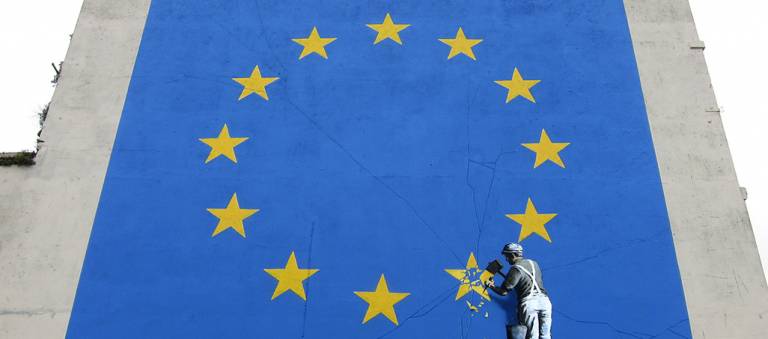

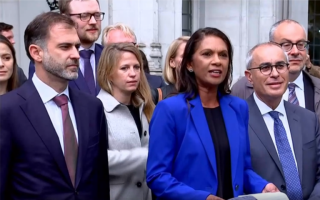
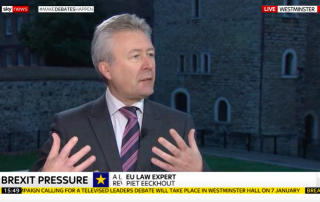

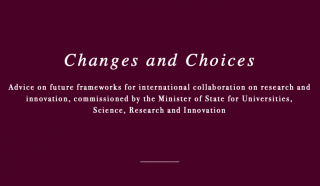

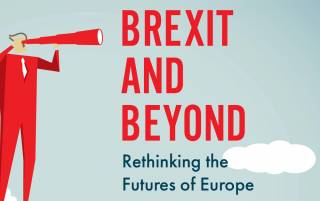
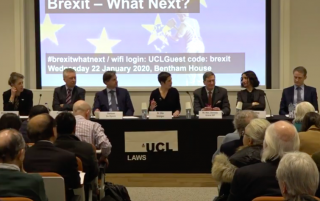
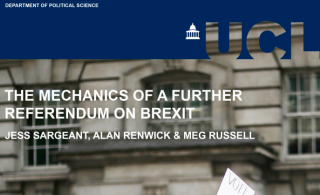
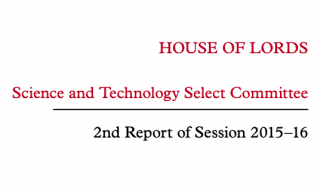

 Close
Close

